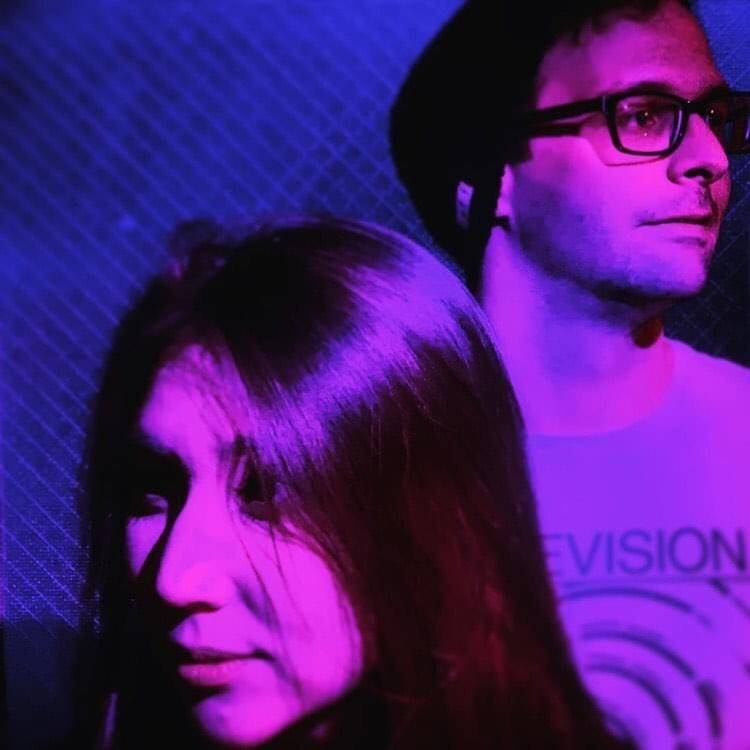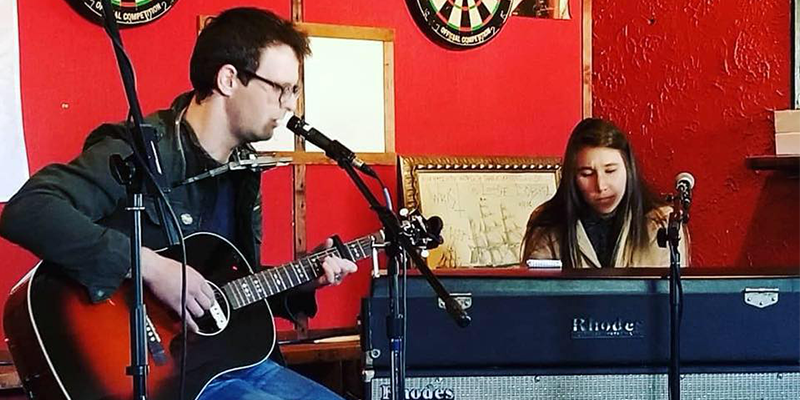Genre labels have multiplied in number, from genres, to sub-genres, down to micro-genres. Yet the ear may find it hard to differentiate one sound from another. Louis Armstrong’s idea of “two kinds of music: good and bad” seems to be the imminent standard. There’s an all-around warmth in that realization.
Thankfully, the now standard process of DIY musicians has made it possible for themselves to be called by the music rather than by technology. A learning curve tends to be a sort of enemy to artists. Artists become inspired by regional sounds as a matter of choice, as opposed to being held captive by them through isolation. The consideration of ear-fatigue that can come from overly rich texture might reflect a kindness towards the audience. Rural areas can be as treacherous and unfriendly as the city, but there’s still an evolutionary component of us that’s calmed by rustic music. And sounds from admittedly or assumed “simple” sources can contain dizzying complexity.
Guitarist/vocalist Taylor Loveall and multi-instrumentalist/vocalist Sarah Cramer comprise the duo Maps of the Midwest. To listen is to feel at home and among friends. Loveall speaks to the listener as a best friend trying to save them from the fallout of foolish behavior. At the same time, it’s a voice that feels like a lost loved-one’s spirit whispering in one’s ear.
Vocals here are supported by deliberately executed guitar finger-picking which sketches and outlines familiar chord changes. Cramer’s atmospheric use of keys, serves as a provision of rhythmic guide-posts. But additionally, she provides intervals and fleshed-out chords that Loveall may at times choose to eschew. This duo and it’s work beg questions of their inner-workings.
Smile Politely: Tell me how Maps of the Midwest materialized. Was there anything unusual about it?
Sara Cramer: Taylor was friends with my husband. They used to work together and had jammed a little over at our house. I liked what I heard and started playing with him. I haven’t been playing keys for too long. This is the first project where piano is my main focus. It’s been fun co-writing and learning for Maps.
SP. Is there any singular approach you utilize when composing material?
Taylor Loveall: A song I write will usually start with the words. They could just pop in my head and I’ll start singing them or I could hear a phrase someone said in passing and it will stick with me and I’ll start building off that. I think of the feeling the words are portraying and then I’ll go to the guitar and try different chords with it and see what key suits the song the best. When Sarah and I collaborate I usually keep it a little loose because as she’s creating her part of the song it starts to grow. As we’re playing, we’ll get new ideas like, “What if we add an instrumental part in here”, or “We should add a bridge here, or bring back the chorus there”. It’s amazing to hear how the song grows and changes the way it does. Once we both are satisfied with it the song is complete.
SP: In modern times, a band or project’s name is seldom indicative of its musical nature. Maps of the Midwest, however, seems to be directly correlative to the spirit of its material. Was this deliberate?
Loveall: As we were thinking of a band name, I slowly started to remember how incredibly hard it is to come up with one. I don’t know maybe I overthink it when I’m doing it. Anyway, we went through several names and then came up with Maps of the Midwest. We were still thinking of other names after that but over time it just started to grow on us. The name represents where we’re from, which in a big way is a part of who we are. I feel like the geography alone of the Midwest, specifically Central Illinois has helped shape who I am and the way I think, good and bad. It’s been the backdrop to pretty much all my experiences in life and all that kind of seeps into the songs and music.
SP: At first glance, you seem to work mainly with acoustic guitar and keys. Are there any plans to expand the instrumentation or otherwise vary the texture of what you produce?
Loveall: Yeah, definitely. We’ve talked about getting some other musicians involved, whether it be for live shows or whenever we decide to make a full album. We both have said things like “we need some drums in that song” and “that would be so good with some pedal steel or horns, or strings”. For the songs we recorded on this EP, I wanted them to have a more stripped down, minimal kind of sound but I’ve got some songs that I’ve just played by myself that would be so much better with a full band sound.
SP: This is a beautiful example of art being served by technology, rather than the reverse, which was the fear of many early on. Are both of you facile with the technical process?
Loveall: I am, especially with acoustic instruments because I want them to sound as natural as they can. For this EP, I wanted the songs to feel the way they do as if we were just performing them in someone’s living room. No samples, no loops, no click tracks. Just play. We recorded this with Mark Wyman over at his studio, ToneGood Studio, and it was such a great experience. He’s just an awesome, hardworking, personable guy. I remember telling him the sound I was wanting, which probably came off as vague and confusing, but he knew exactly what I meant and made it happen. As we were recording and mixing, I could tell he was excited about the songs and had some new ideas which helped the songs grow even more. He really did a beautiful job with it and we couldn’t be happier about it.
SP: There’s a soothing quality to a duet, regardless of the instruments utilized. Do you personally prefer this to other projects to which you contribute?
Loveall: This is the only project I’m apart of right now but at the place I am in my life I prefer a duet. We both are pretty busy in our own lives so if we have new ideas for something or a new song we can text or call each other. When we both have some free time, we can get together and practice. I find that as a duet, the time you spend on a song is so much more efficient which gives you extra time to really dial in everything and perfect even the smallest parts of a song.
SP: In Maps, the guitar moves beyond the supportive use of chordal acoustic guitar and enters the realm of contrapuntal fingerpicking. It can be problematic to arrange keys around this. Is it?
Cramer: The fingerpicking often has fun little melodies in there that I like to play off of. Usually, I like to play simpler melodies of longer tones over the fingerpicking.
SP: Are both of you multi-instrumentalists? I know Sarah is.
Loveall: Yeah, although it’s really guitar and harmonica that I focus my time on. When I was in grade school, I played cello for a while and there were just a lot of different instruments around the house. There were guitars, a banjo, a dulcimer, an electric organ. I would play on them, but I just really took to the guitar. That’s the instrument I would reach for when I wanted to write and play a song.

Photo provided by Maps of the Midwest.
SP: Is there an ultimate or exhaustive musical benchmark that you’re trying to reach? Or is this completely reflexive exploration?
Loveall: There is a musical benchmark I’m trying to reach. It’s not so much about being a great guitarist or a great singer but more about being a great songwriter. Sometimes when I write songs, I will have this thought somewhere in the back corner of my mind that’s like, “this could be the greatest song I could ever possibly write”. Of course, it doesn’t happen. I don’t think it’s something that can be achieved or even exist but for some reason that thought is still there. I am getting better at not comparing songs so much and being okay with things I don’t like about certain songs that I’ve put out there. When I’m writing songs, I like to think about when I was 13 and I first listened to bands like The Weakerthans, Samiam, and The Lawrence Arms. Then I found bands like Cursive, Frightened Rabbit, and Bright Eyes. They wrote songs that connected with me and inspired me to keep going and write my own songs. If I could help or inspire someone else with a song, and just keep doing that, then that would be me reaching my musical benchmark.
SP: Your material seems as if it would work well with film. Have either of you considered film-scoring?
Loveall: I’ve never done anything like that, but I think it would be so much fun. I feel like it would really help expand the way I write music and the way I think about it. I love movies, music, and film scores, so I would be really excited to be a part of something like that.








